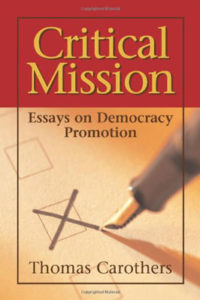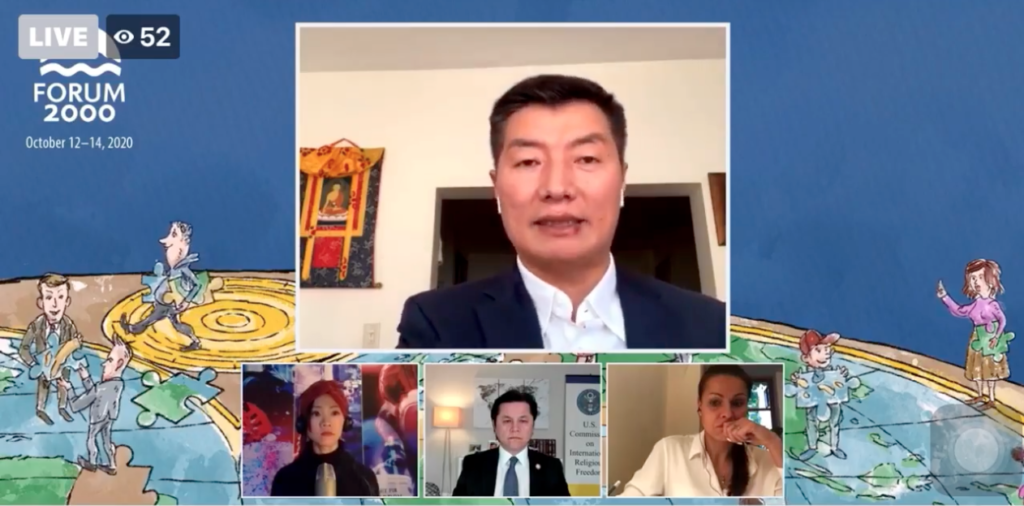Solidarity is the only solution for handling a global crisis like the Covid pandemic, an international forum heard this week.
Talk about “saving” democracy is not helpful because democracy changes constantly, due to many factors, said Ivan Krastev, the chairman of the Centre for Liberal Strategies in Bulgaria and a permanent fellow at the Institute for Human Sciences (IWM) in Vienna.
“In my view, what really should be saved are certain values, freedom itself,” he told the 2020 Belgrade Security Forum. “It is not only about institutions, because institutions have been changing. One of the strengths of democracy is that it is a self-correcting type of political regimes,” European West Balkans reports.
But is democratic internationalism on the wane?
“There was a much larger degree of transnational solidarity worldwide when it came to dismantling the communist regimes. We are seeing much less solidarity these days,” the IWM’s Shalini Randeria told the concluding panel (above) of Forum 2000, alongside National Endowment for Democracy (NED) president Carl Gershman, the V-Dem Institute’s Anna Lührmann, and former Soviet refusenik Natan Sharansky.
Check out the first-ever virtual #Forum2000 Conference #NewWorldEmerging🤝🌏! In case you missed some of the sessions, you can easily catch up on them on YouTube 👉 https://t.co/1CfPwDKcAs pic.twitter.com/kFBfAUISrz
— Forum 2000 (@Forum_2000) October 14, 2020
But V-Dem’s Luehrmann felt “sort of a hope that people stop believing this narrative that we don’t need the state and that politics does not matter. Because we really have seen that politics matters for the health and life of each and every one of us.”

Globsec
In a future Belarus, women will play the same role in politics – and other areas of life – alongside men, President-elect Sviatlana Tsikhanouskaya told a Forum2000 discussion on Womens Rights in times of crisis.
“We want new, fair and transparent elections. Before this election, we demand dialogue with authorities.” she added.
Support to Belarusian civil society “needs to remain continual,” said Czech foreign minister Tomáš Petříček. “They need to know we stand behind them.”
 Rather than the type of political system, handling large crises heavily depends on the effectiveness of leadership, said Thomas Carothers, senior vice president for studies at the Carnegie Endowment for International Peace.
Rather than the type of political system, handling large crises heavily depends on the effectiveness of leadership, said Thomas Carothers, senior vice president for studies at the Carnegie Endowment for International Peace.
“What you really need to handle the pandemic effectively are four things: responsible leadership, good state capacity to formulate policies and implement them, social cohesion, and ideally, previous experience with health emergencies”, he told a Belgrade Security Forum discussion on “Saving democracy: Cooperation and solidarity in the aftermath of the pandemic.”
Other Forum 2000 discussions highlighted the threat of the authoritarian resurgence, notably from China.
“We are at a critical juncture where we have to decide what the US Secretary of State, Mike Pompeo said a few weeks ago – i.e., either to change China or let China change us,” said Dr Lobsang Sangay of the Central Tibetan Administration.
“I voiced the exact concern two years earlier in 2018 at Geneva Forum that ‘either we transform China or China transforms us,” he told the Václav Havel Human Rights Symposium (below), alongside Nury A. Turkel, of the U.S. Commission on International Religious Freedom and Hong Kong-based artist Loretta Lau.








